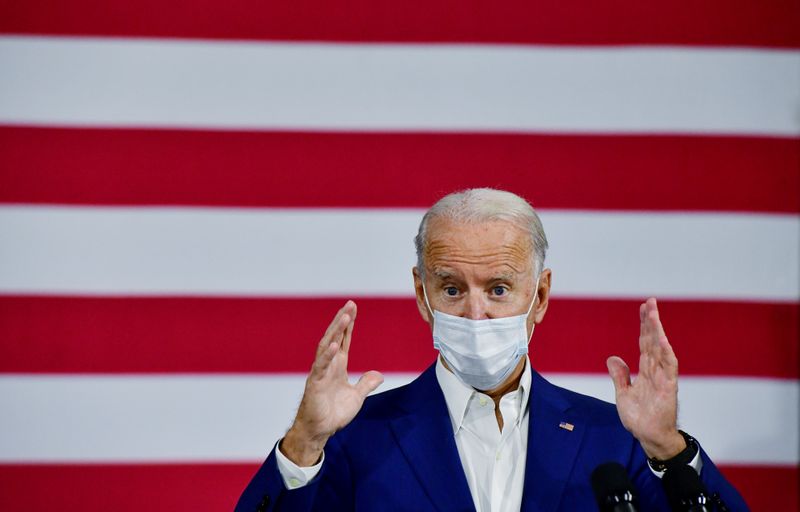WASHINGTON (Reuters) – Democrat Joe Biden would seek to reset the terms of economic and technology ties with China while combating unfair practices and aggressively enforcing U.S. trade laws, a senior foreign policy adviser to the former U.S. vice president said on Tuesday.
Tony Blinken told an event hosted by the U.S. Chamber of Commerce that it was unrealistic to “fully decouple” from China, and Biden would focus on expanding U.S. strategic influence by rebuilding ties with allies to pursue a more effective approach, including by setting international technology standards.
“Trying to fully decouple, as some have suggested, from China …. is unrealistic and ultimately counter-productive,” Blinken said. “It would be a mistake.”
U.S. President Donald Trump, angered by China’s handling of the coronavirus crisis, has repeatedly suggested that the United States could separate its economy from China’s, a prospect that worries many U.S. companies given the huge importance of the Chinese market for their future growth prospects.
Despite his frustration with Beijing, Trump argues that the Phase 1 trade deal signed with China in January was a big step forward. He says China is buying far more U.S. goods than ever before, although trade experts say their total purchases will fall far short of targets sets for the first year of the deal.
In political rallies, Trump often warns that Biden would take a less combative approach to China.
Blinken said the trade deal had been “a debacle” since it did not address the systemic issues between the world’s two largest economies, and China was not even meeting the targets for increased purchases agreed under the limited deal.
“Right now, by every key metric, China’s strategic position in stronger and America’s strategic position is weaker,” Blinken told the online event, adding that Biden would focus on rebuilding U.S. competitiveness to better compete with China.
He said the United States should change its approach to be able to negotiate with China and counter its behavior in global markets, but dodged a question on whether he would seek to rejoin or revive the Trans-Pacific Trade Partnership, a trade pact with other Asian countries that Trump canceled.
Biden did support using tariffs when necessary, Blinken said, but also would formulate a broader plan including reshoring production of some essential supplies.
“The so-called Phase 1 deal doesn’t address … the systemic issues that are truly a problem,” he said, adding that Trump’s trade war against China hit U.S. farmers and manufacturers.
“Even on its own very limited basis, China is not making good not on the commitments that have been made,” he added.
If elected, Biden would “consistently and aggressively enforce American trade laws anytime foreign cheating posed a threat to American jobs,” he said.
He said Biden would also use “tariffs when they’re needed, but backed by a strategy, a plan, to use it to succeed, not to fake toughness and to harm our own people.”
(Reporting by Andrea Shalal and David Lawder; Editing by Chizu Nomiyama and David Gregorio)






















